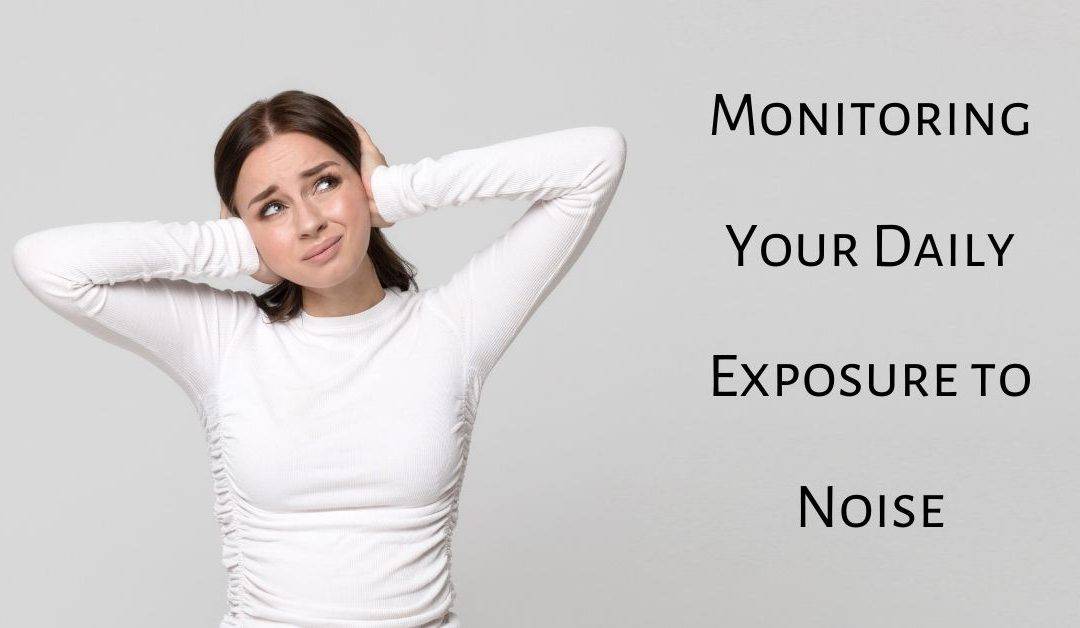We navigate a range of sounds and volumes throughout the day, often without realizing all the noise we are regularly exposed to. While we typically do not think twice about the noise level we are regularly exposed to, some of it can actually be harmful for hearing health. Monitoring our own hearing is crucial to prevent permanent damage from prolonged exposure to high noise levels.
Exposure to loud noise is actually a common cause of hearing loss, a permanent medical condition that affects 1 in 8 people. Teenagers and young adults are increasingly becoming more at risk of noise induced hearing loss. In fact, according to the Hearing Health Foundation:
- 50% of people ages 12-35 could be exposed to unsafe noise from personal listening devices
- 40% of people ages 12-35 could be exposed to potentially damaging levels of sound at entertainment venues
Additionally, 30 million people in the U.S. are exposed to hazardous noise levels in the workplace. There are numerous other ways we absorb loud noise daily that is potentially dangerous. It is important to be aware of your daily exposure and ways you can protect your hearing health!
Noise Induced Hearing Loss
Hearing loss can be caused by existing medical conditions, genetic history, aging, and loud noise. One exposure to a loud noise or consistent exposure to noise can cause irreparable damage to integral parts of the auditory system which is how we hear. Noise induced hearing loss results from damage or loss of sensitivity of the hair cells in the inner ear.
There are thousands of hair cells in each ear which help translate soundwaves into electrical signals. These signals then travel through auditory pathways to the brain where they are processed. The auditory nerve then transmits these signals from the inner ear to the brain, where they are processed into recognizable sounds. The brain assigns meaning to the sound which allows us to understand what we hear.
Loud noise can cause permanent hearing loss by straining these tiny hair cells which unlike other types of cells, do not regenerate. This means that we are born with all of the hair cells in the ear that we will ever have and when they are damaged, the effects are permanent. Damaged hair cells are unable to help the brain process sound waves as effectively, resulting in hearing loss. Using hearing protection devices like earplugs or earmuffs can help prevent damage to these hair cells by reducing the amount of loud noise that reaches the inner ear.
How Loud is Too Loud?
Sound is measured in units referred to as decibels (dB) and noise that is 85dB and above, is considered potentially harmful to hearing. The human ear can perceive a wide range of sound levels, but prolonged exposure to high decibels can cause damage. To have a sense of what that sounds like, you can refer to the following spectrum:
- 0dB: silence
- 30dB: whispering
- 60dB: normal conversation
- 80dB: city traffic, vacuum cleaner
- 100dB: power equipment (hand drill, lawnmower)
- 120: airplane takeoff
- 130dB: concert
It is important to note that there are everyday activities we engage in that expose us to sound levels above 85dB. This includes using household appliances, commuting to work, listening to audio on your phone, attending concerts, and other environments with loud sounds.
Monitoring Daily Noise Exposure
One way to reduce your risk of developing hearing loss is to monitor and reduce your daily noise exposure to dangerous levels. Loud noises, especially in sensitive environments like dementia care institutions, can cause overstimulation and exacerbate challenges faced by individuals. This involves knowing the decibels and length of time you are exposed. The greater the decibels, the higher the hazardous impact it can have on your hearing. For example, experts suggest that you can listen to sounds at 85dB for a maximum of 8 hours versus sounds at 88dB for 4 hours in a day.
Repeated exposure to high noise levels can significantly increase the risk of permanent hearing damage.
You can monitor decibels in a given environment by downloading an app that measures sound! There are apps that measure decibel levels which is a useful way to stay aware of the noise you are absorbing. So, when the app identifies a sound that is 85dB or higher, you should implement safety precautions if you are unable to distance yourself from the source of the noise.
Protect Your Hearing Health
There are numerous ways you can protect your hearing health and reduce your risk of hearing loss. A few tips include:
- Wear Protective Gear: there are various types – earmuffs, ear plugs, earbuds etc. which serve as a protective barrier. They reduce the amount of soundwaves you absorb, minimizing the impact of loud noise. Organizations like the Center for Disease Control (CDC) emphasize the importance of using hearing protection devices to prevent occupational hearing loss.
- Noise Cancelling Headphones: investing in noise cancellation features reduces background noise which means you do not have to increase the volume on your device in noisier settings.
- Take Listening Breaks: allows your ears and brain to rest and recover from constantly absorbing and processing sound.
- Have Your Hearing Assessed: Hearing tests measure your hearing ability in both ears and identify any impairment, allowing you to address and treat any hearing loss you may be experiencing.
If you’ve experienced changes in your hearing, it is important to take a hearing test. We offer comprehensive hearing health services and we’re here to help! Contact us today for an appointment.
The World Health Organization (WHO) estimates that a billion young people globally are at risk of hearing loss due to unsafe listening practices, highlighting the need for proactive hearing protection measures.

